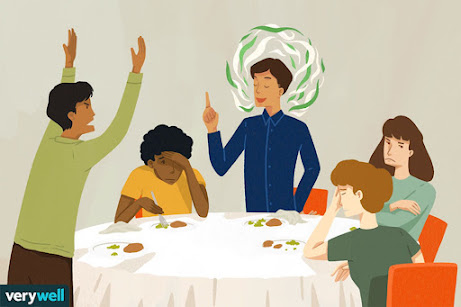The study of the Dunning-Kruger Effect in field of ' Education ' goes a long way in gauging the rot that's eating into the vitals of every education system.
Students spending more time on digital screen behave know-it-all, and don't like to listen to teachers even on topics that require experience-based knowledge.
Sometimes students gloss over their incompetence by overestimating their abilities. It further leads to their inability to recognize that their performance in studies is poor.
In this post truth era where truth no more matters, and when fake information is pedalled and imbibed through osmosis, everyone simulates as the, ost authentic person -the pseudu-savants in actuality.
Such a deluge of snippets of information has produced people with shallow knowledge, the intellectual quacks.
Such people actually suffer from the Dunning-Kruger Effect which is when individuals with half or no knowledge about a phenomenon paradoxically pose as the most authentic source of information on a certain topic.
Rather they are under the delusion that their opinion must be deemed as the fullstop on the moot point.
Although the Dunning-Kruger Effect remained scientifically undiscovered till the late 20th century, it exists in human society as is corroborated in proverbial sayings like ''A little knowledge is a dangerous thing. Even writers and wits have through the ages warned of its deleterious impact, as Charles Darwin says :
''Ignorance more frequently begets confidence than does knowledge.''
But now it has attained pandemic proportions especially in our part of the globe where digital literacy is not harmonious.
The ubiquitous affectees [victims of Dunning-Kruger Effect] are ever ready to express their half-baked opinions unasked on every matter whether it falls within their purview or not. They shun others' opinions with definitiveness without giving s single thought.
It makes them intolerant in discussions and dialogues where they barge into on their own. Actually it springs from knowledge gap when they fail to keep pace with their surrounding world which is moving on at a high velocity. Their inflated self-assessment makes them egoistic regarding the acceptance of their opinions.
By contrast, this effect also causes teachers who excel in a given discipline of knowledge to think a task is simple for students, and underestimates students' relative abilities. Teachers who are professionally knowledgeable evince their exasperation when students don't perform as the former expect.
THEY SEAL the students fate then and there, ignoring the fact that they haven't come down to students level in their pedagogical approach. Their own cognitive blindspot doesn't let them acknowledge the gap between their calibre and that of students.
They will have to come down to students' learning level to make learning process comprehensive and easier.
Socrates once said that his wisdom was knowing how much he didn't know. And the victims of this effect put their wisdom on airplane mode. They start simulating the role of 'Google' overblown with knowledge to be doled out unsolicited.
The simplest remedy for this silently suffocating malady is metacognition i.e. thinking about one's own thinking. It's to critically watch one's own cerebral behavior, the self-accountability of one's thought pattern.
One needs a few moments of solitude and monologue because the moment one recognises the psychological snobbery, one is halfway through the solution. After all, it has hampered his own positivity and growth.
Efforts super-saturated with sincerity and motivation to remove and recognize deficiencies in one's own knowledge or cognition help one in self-recovery.
Books and newspapers keep one abreast of kaleidoscope range of changes on educational and intellectual landscape of the world.
Books and newspapers develop mindfulness and soulfulness whereas on the screen every bit of knowledge is flashy and superficial. At least, first they have to demarcate the domain wherat they compare themselves with others.
Everyone is prone to this effect, but openness to feedback, objectivity in analysing others' opinions and lifelong commitment to learning can help minimise its impact.
The World Students Society thanks author M Nadeem Nadir.

.png)


0 comments:
Post a Comment
Grace A Comment!